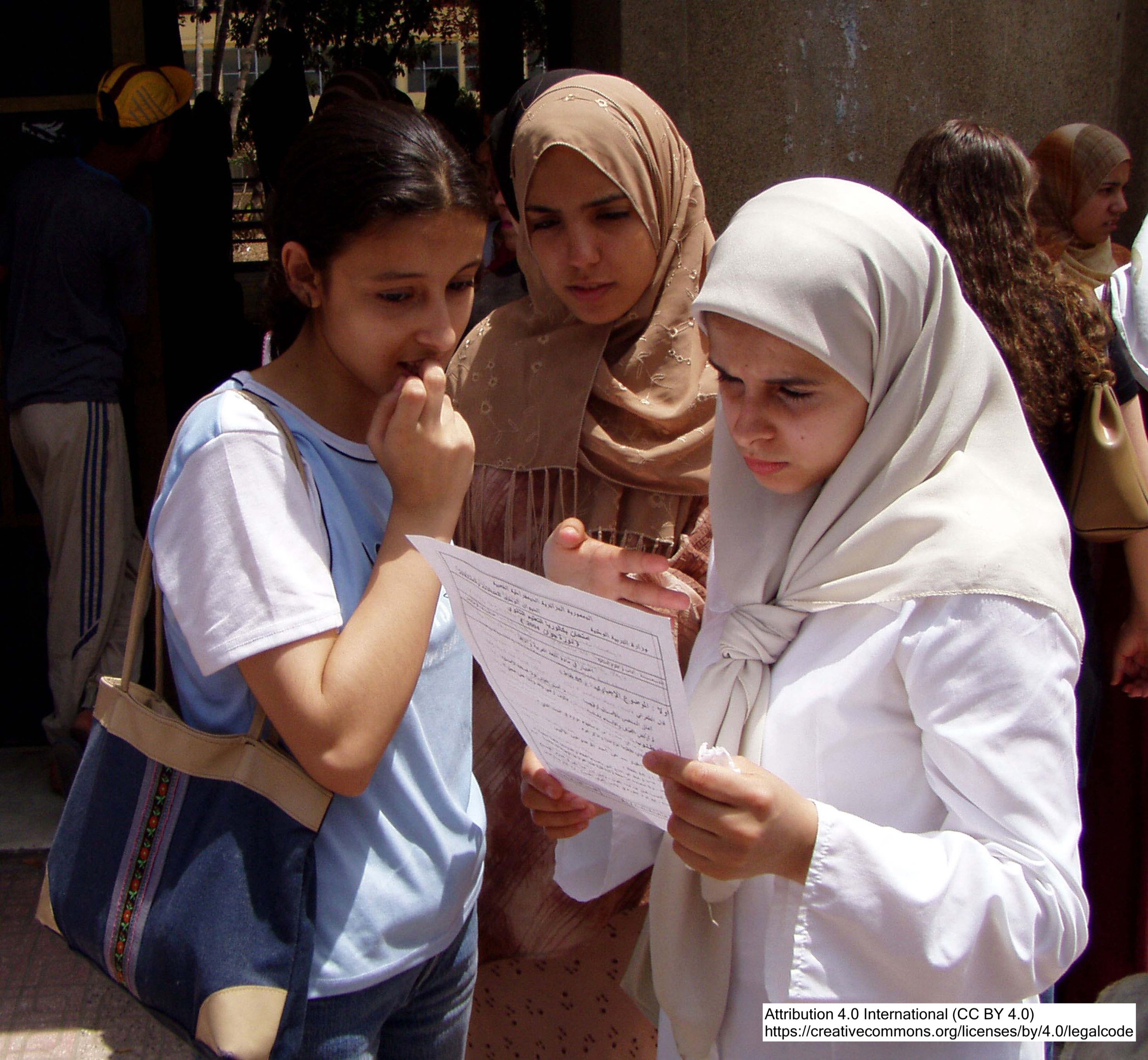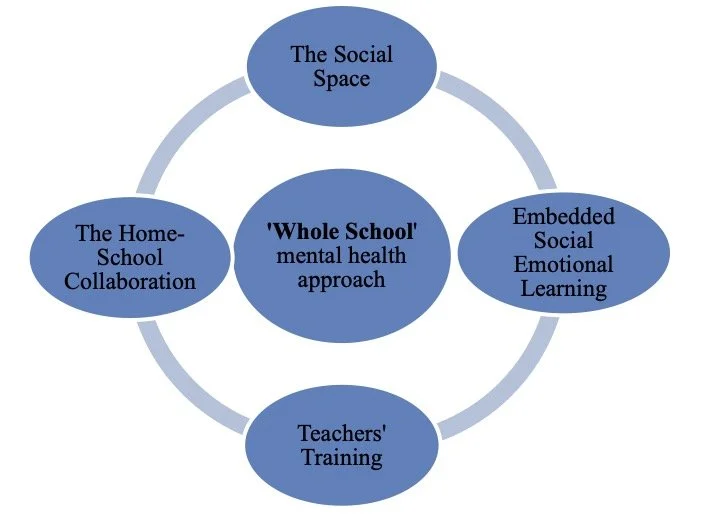A Year Without School
The COVID-19 global pandemic has brought disruptions to all habitual routines and other life aspects around the globe. The education sector has experienced the largest unplanned technological experiment of all time, characterised by the shift from face-to-face to virtual education. However, certain environmental and technological constraints have led to a surge of total school closure in some countries, such as the case in Algeria. It goes without saying that school closure may have detrimental effects on students and their parents. Special attention should be paid to students with special educational needs (SEN), to whom the school is considered a source of support. My own research, which is currently submitted to an academic journal and under review, highlights the impacts of the COVID-19 containment measures in general, and school closure in particular, on children with SEN and their parents in Algeria. This essay features research findings regarding the lock-down stories and challenges parents faced without the school. In this essay, I draw out practical implications and lessons for educators from what the parents’ experiences tell us. This essay informs the crucial role of schools in nurturing and promoting the students’ wellbeing and suggests that the path forward after the COVID-19 pandemic should consider the ‘whole school approach’ in addressing mental health in schools.
Mental Health in Schools
Every year, schools across the world undergo continuous and complicated changes in order to respond to the demands of a fast-changing world. These changes and educational practices can place an extra burden on staff, teachers, and students. Cultivating the students’ mental health within these changes can be challenging as mental health practices could easily get lost in the quest for educational and academic development. Thus, the school environment, structure, and practices can contribute to the students’ trajectories of academic failure, social deficits, and mental health difficulties. Students with SEN sometimes experience emotional and social difficulties at schools as a result of different challenges.
Although school services have the potential for maintaining and boosting the mental health of students with SEN and their parents, rigidity and inflexibility in schools can be challenging. In recent years, there has been an increasing emphasis on the impacts of school on the social-emotional health of students, school-related stress, and mental health in children. Students’ social-emotional functioning has been associated with factors such as academic success, school belonging, academic-related stress, and peer bullying. There is no denying that the school can be a source of academic stress to the students, which explains the increase in mental health concerns.
Furthermore, peer relationships and social acceptance in schools play a significant role in increasing or decreasing students’ mental health and wellbeing. With regard to social relationships in schools, research has consistently shown that social rejection is more prominent among children with SEN. This may suggest that the school environment can increase the social-emotional difficulties in children with SEN. The schools are “emotion-filled places”, which are based on the social experiences of the stakeholders (teachers, staff, and students). Therefore, a positive school climate carries a prominent role in boosting the students’ mental health and vice versa.
The Mental Health Outcomes of School Closure
The absence of school can also trigger mental health difficulties in children and their parents. My study on the impacts of COVID-19 highlights the individual, social, and educational-level challenges faced by the parents and their children with SEN during the pandemic. The study associates school closure with the increase in mental health difficulties. Parents of children with SEN in Algeria reported that their children experienced emotional and social challenges during the lockdown, which they attributed to the absence of school and the support embodied in the school organisation. On the individual level, children with SEN exhibited high levels of stress, emotional meltdowns, sleep difficulties, and separation anxiety. On the social level, the lack of social interactions that mainly occurs in schools resulted in students with SEN experiencing social difficulties. Social isolation by choice and loneliness were the main characteristics of those social challenges. On the educational level, children with SEN experienced anxiety about the future and dreaded going back to school.
These mental health difficulties were also reflected in the parents’ challenges. In a similar vein, parents of children with SEN reported individual, social, and educational level mental health outcomes of the pandemic. Parents’ guilt and concerns about their children’s education characterised the parents’ difficulties and lockdown stories. Furthermore, the parent participants of the study identified the lack of support and the infrastructure of the country as the main challenges in supporting their children with SEN during the pandemic. Parents reported difficulty in supporting their children’s education and special needs with the lack of support usually provided by the school.
Therefore, I found that parents express their need for the school organisation where mental health and social-emotional development can be nurtured and promoted. The absence of school created notable difficulties on the individual (emotional), social, and educational level of the children with SEN and their parents. Children spend a considerable amount of time in schools. In many countries, the school is regarded as the largest source of mental health services, and it can be the “only source of mental health supports for children” in some communities. The school, therefore, plays a critical role in the children’s development including emotional control, social interactions, and moral development. The school as a social context is considered a second home for the children, where social and emotional developments take place. For parents, the support that the school provides to their children can be an important source for their wellbeing. In what follows, I present the implications of practice that parents’ COVID-19 experiences tell us.
Implications for Practice
Whilst being perceived as a context that can trigger mental health difficulties, the school could provide the needed support to promote the students’ mental health. Therefore, in this essay, I highlight the study’s implications for research and practice. For research, studies need to focus on the mental health outcomes of school closure with the aim of identifying and promoting positive provisions. Moreover, voices of children with SEN and their parents in developing countries are under-represented in mental health research. In practice, the focus should be directed to schools in fighting mental health difficulties in all children by addressing a ‘whole school approach’ that reflects major mental health needs: the need to maintain a positive social environment (the social space), the need for collaboration between the parents, the teachers, and the school to identify early mental health symptoms (the home-school collaboration), the need to embed social and emotional support in learning (social-emotional learning), and training teachers on supporting wellbeing in the classroom. The experiences of parents and their children with SEN during the pandemic suggest that schools need to focus on their social and emotional role. Lessons learned from the COVID-19 pandemic have to be taken into consideration in implementing practices and measures that meet the mental health needs of all the students in a post-COVID era.
The Social Space
The school should prioritise the support to all students by creating a positive climate. The school is a learning setting, and learning occurs in a social context. Therefore, schools have to respond to the social needs and demands by providing spaces that cater to the students’ learning and social skills. Creating social spaces within the school – which can be used for group works, informal learning, and social activities – can help to engage with the school community. In addition, the social space within the school can have a prominent role in supporting learning through social interactions; it can boost the students’ creativity and social skills. Teachers can use the social space to teach and target social skills that can be based on the demands of the local community. Social skills training contributes to the increase of peer social acceptance and social inclusion. Play, drama, music, and craft activities in education can be some of the examples of social activities that teachers can use in the social spaces. Furthermore, the relationship between the students, the staff, and the teachers can contribute to the social space of the classroom. More attention should be paid to the social space facilitating social and emotional development. Parents can be involved in social activities based on the students’ needs. The school’s social space can be a facilitator to the student-parent social and emotional development.
The Home-School Collaboration
The schools should maintain collaboration between staff, teachers, and parents. Ensuring informed parents could help to identify mental health difficulties and to unblur parents’ expectations. Parents reported various difficulties and challenges that resulted from the school closure which may suggest their need for collaboration with the school. In a ‘whole school approach’, parents should be involved in the school’s practices. Parental participation can increase the students’ emotional development, the parents’ self-confidence and knowledge, and home-learning practices. Both parents and teachers can identify time constraints to developing parent-teachers partnerships. However, it is the role of the school to plan recurring meetings that aim to engage parents in the students’ educational and social-emotional development. Parental engagement strategies should be school-based and teachers and staff members can take part in designing the engagement strategies. Engagement strategies can include:
Using different communication tools (newsletters, regular meetings, social events, social media)
Providing training to parents, teachers, and staff members concerning parental engagement.
Encouraging parents’ help. Parents may prefer not to get involved when they feel that they know less about their children’s education and mental health. Therefore, the school should encourage the parents’ voice to create a two-way collaboration where parents can learn from the teachers and the staff members, and the school can benefit from parents’ suggestions and help.
Encouraging teachers and parents to provide reports about the children’s educational and mental health development on a regular basis.
Focusing on building parents’ educational knowledge and familiarising them with the different school curricula. This can help parents in supporting their children’s home-schooling.
Social-emotional learning
The school organisation should ensure embedding social-emotional learning. Including content on mental health in every curriculum can strongly increase the mental health awareness and the social and emotional development of the students. The social-emotional learning has to be considered as a part of the curriculum and not as a separate activity from learning. Contents on diversity, social acceptance, relationship skills, and real-life experiences can be embedded within the curriculum. Teachers can coordinate their social-emotional activities to align with the syllabus objectives. Social and emotional learning has a crucial role in reducing bullying, increasing positive behaviour, and promoting mental health.
Teacher training
Teachers’ training involves equipping teachers with the needed recourses and knowledge to support their students. The daily teacher-student interactions can help to identify mental health difficulties in the classroom if appropriate practices are put in place. Teachers’ mental health training and mental health resources can be helpful in enhancing the teachers’ knowledge and attitudes towards the students’ mental health as the lack of knowledge, skills, and positive attitudes can prevent teachers from supporting their students.
The path forward after the COVID-19 pandemic should focus on the power of schooling to contribute to a positive social and emotional experience for all children. School challenges could be lessened by addressing mental health needs. These implications are interrelated and interactive and should be designed to work together in a positive school environment. The findings in the study hold crucial implications for teachers and educational settings and can inform the schools’ organisation structure, provisions, and interventions, suggest prioritising a ‘whole- school’ approach where mental health can be nurtured and promoted.


